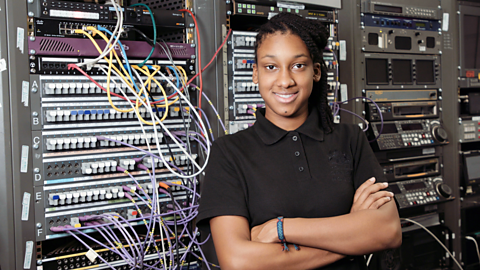My first job

Your first job can be a treasure trove of valuable lessons about work and your future career.
We asked some apprentices at the BBC about what their first job experiences were and what they learnt from those early roles. From working at a theatre to milking cows, and plenty in between, they had lots of gems to share from their first steps into the working world.
- Scroll down to hear some of the apprentices' stories
- Check out our quick tips for a snapshot of all the apprentices' top advice.

BBC apprentices' first job stories
Milly's story
| BBC apprenticeship | Production apprentice, BBC Music Introducing and local radio |
| First job | Working on a dairy farm |
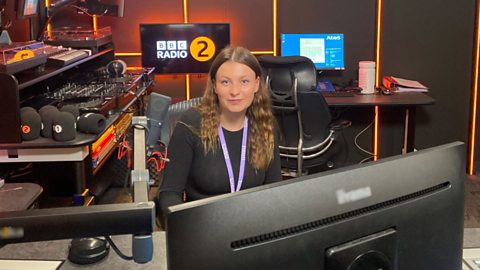
How did you get your first job?
My first job was milking cows every morning before school (as a teenager). I grew up on a farm and I wanted to earn some money, but I didn't want to be paid out of my family's wages. So, I asked my parents if they knew anyone in the local area who needed help. I was put in touch with a local dairy farmer who was more than willing to help me gain skills in my first job.
What did the role involve?
The role included making up powdered milk and bottle feeding it to the calves, assisting with the prep for milking (herding the cows into the dairy and cleaning the udders), assisting with milking the cows (this is done via robot milk suckers that had to be manually placed onto the udder and automatically popped off when there was no milk left), letting the cows out onto the field after milking and topping up water and dry feed.
What did you learn there?
I learnt a lot of skills whilst working, including responsibility and time management. I was a young teenager balancing early morning commitments with school so the ability to prioritise tasks was important. I also gained my first sense of teamwork as I was working with other people, using effective communication to ensure smooth operations. I developed a sense of work ethic and being proud that I had the ability to earn my own money. As well as these skills, I learnt about the food production process and fostered respect for agriculture and sustainability. These are all highly transferable skills and knowledges that are important for the future.
What's the biggest lesson you’ve taken forward?
I learnt to appreciate life more when I was able to buy things with my hard-earned money. A big lesson I also took from this role was the value of discipline and consistency. This set the foundation for my future life, developing habits and attitudes that will stick with me into my adulthood. I also think it has made me into a hard-working and appreciative person.

Sam's story
| Current role | Journalism co-ordinator, BBC Radio Kent |
| BBC apprenticeship (completed) | Production apprentice, BBC Radio Kent |
| First job | Front-of-house assistant at a theatre |
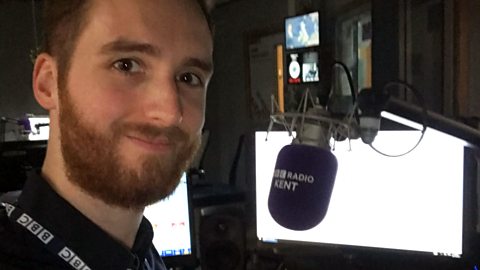
How did you get your first job?
I saw my first job as a front-of-house assistant at a theatre advertised via the company's website and applied with a CV template that I’d made at school.
What did the role involve?
Mostly retail duties, serving customers in either the sweet kiosk or coffee shop. So, cash handling and working the tills, selling programmes and merchandise for shows, restocking the shelves/fridges and helping prepare interval refreshments.
What did you learn there?
The importance of asking for help if you are unsure on how to do something rather than trying to guess! It helped me to understand basic workplace etiquette such as how to present myself, how to keep my workstation clean and tidy and to take initiative i.e. if I’ve finished doing my duties, offer to help other colleagues to encourage teamworking.
What's the biggest lesson you’ve taken forward?
Key things it’s taught me that I’ve taken into my future career:
- Being accountable for my actions and being honest if I’ve made a mistake
- How to make a decent barista style coffee (though I can’t do latte art, sorry!)
- How to be a good team player
- How to work calmly under pressure (panto season was crazy with sold-out performances of up to 900 audience members so I learnt to serve people with accuracy and speed and to plan ahead).

Elyse's story
| BBC apprenticeship | Production apprentice, BBC Children's and Education |
| First job | Swimming teacher |
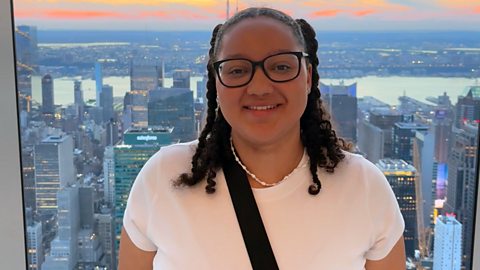
How did you get your first job?
I got my first job (as a swimming teacher) by responding to an email call out at my college. It's a job I still do on the weekends.
What did the role involve?
- Supervising swimming lessons for up to 10 children at once
- Making sure all children were progressing and tailoring lessons to their needs
- Planning lessons so that children's swimming badge requirements were filled out
- Organising equipment for lessons
- Filling out records and databases of the children's progress
- Speaking to parents about child progression.
What did you learn there?
I would say that the biggest thing I learnt in this role is being patient. When working with children there are a lot of challenges, like accommodating the fact that they all learn at different paces.
What's the biggest lesson you’ve taken forward?
The biggest lesson I have learnt from being a swimming teacher is that giving positive affirmations even if someone isn't doing something exactly right can help them to improve. Building that supportive environment for the children was the best thing I did to encourage them to talk to me and then tell me different ways they learn.

Liv's story
| BBC apprenticeship | Production apprentice, local radio (BBC Hereford & Worcester) |
| First job | Working at an ice cream farm |
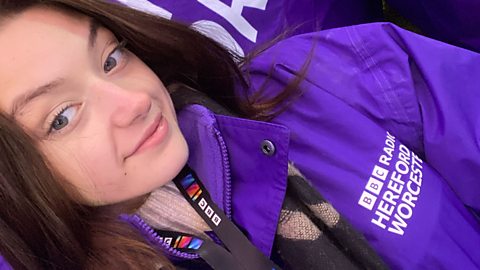
How did you get your first job?
My first official paid position was when I was 15 and I worked at a local ice cream farm. I saw the role on a job site and answered the most amazing interview question – "if you were an ice cream flavour, what would you be?"
Before this role, I'd done volunteering supporting charities like our local animal rescue centre. I'd reached out to the charities because I was keen on using my free time to try new things and meet new people.
What did the role involve?
My job at the ice cream farm mainly involved hospitality duties, like making beverages and serving cakes and food. It also included serving a variety of ice creams and milkshakes, as well as dressing up as many different characters and supporting the farm's animal tours!
What did you learn there?
In any first job you learn a lot but I would say that my first roles helped me to experience working with all types of people and how best to interact in the workplace. There were serious responsibilities with deadlines but we also had a lot of fun so there was an amazing balance.
What's the biggest lesson you’ve taken forward?
I learnt that there is always a way forward when you face challenges. For example, we had an issue with some staff not enjoying dressing up in costumes on the farm. We came up with an idea to have a rota, so that this part of the role was split fairly between the team. We paired up people who weren't enjoying it with people who were, which helped to raise morale. In the end, everyone really enjoyed the day or two they did in costume each week!

Quick tips
The featured apprentices gave some great advice, but there were lots of handy tips from other apprentices at the BBC too. Here are some of the highlights:
How did you get your first job?
- Went into the business with a CV
- Applied through a job site
- Responded to a job posting on the company's website
- Drew on connections via family and friends
- Stayed on after a work experience placement
- Found volunteering opportunity on social media
- Undertook volunteering opportunity for Duke of Edinburgh
- Responded to an email call out at college.
What did you learn at your first job?
- Communication with a wide range of people
- Patience in challenging situations – staying calm under pressure
- Work etiquette, like how to present yourself
- Having a "can-do" attitude
- Time management, including balancing work with studying
- Organisation for juggling different tasks and priorities
- Work ethic – taking pride in what you're doing and giving it your best shot
- Teamwork, including understanding different personalities and dynamics
- Responsibility – taking ownership of tasks and doing them well
- Confidence in being in new workplaces with new people.
[I learnt] the importance of asking for help if you are unsure on how to do something rather than trying to guess!
Sam, BBC production apprenticeship scheme graduate
What's the biggest lesson you've taken forward?
- Be respectful to everyone and make sure you're being respected too
- Make time to listen and don't rush things
- Be kind – you never know what going that extra mile for someone can do
- Be genuine – people will relate to you if you're authentic
- Seize opportunities as much as you can
- If a task makes you really anxious, talk to someone about how you feel
- Be accountable for your actions – be honest if you make a mistake
- Be disciplined and consistent – it can go a long way
- Remember there is always a way forward when you encounter a challenge
- Be encouraging to others to help them improve.
I feel a lot more confident in myself now and my ability and I think it's vital to have confidence in yourself when applying for jobs and going for interviews as the way you carry and present yourself is very important.
Mia, BBC production apprentice
If you'd like to find out more about opportunities at the BBC, check out BBC Get In for "taster" experiences of what it's like to work here and whether a BBC early careers scheme could be a good fit for you.
More from Bitesize Careers
Career toolkit: How do I write a great CV?
Everything you need to know to write an engaging CV and land your dream job.

Career toolkit: How do I write a great cover letter?
Everything you need to know to write a memorable cover letter that sells your skills.
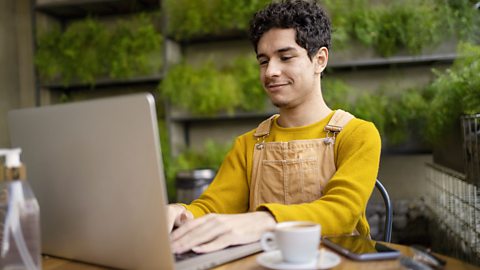
How can I explain my skills to employers?
Learn how to demonstrate your abilities using the STAR method.
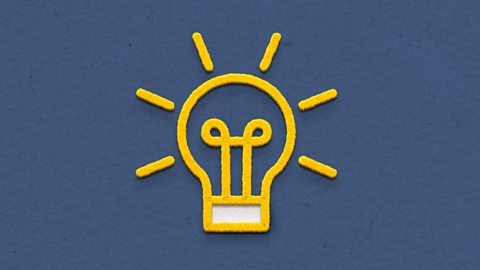
‘What tree would you be and why?’: Tackling weird interview questions
Top tips on how to handle curveball interview questions.
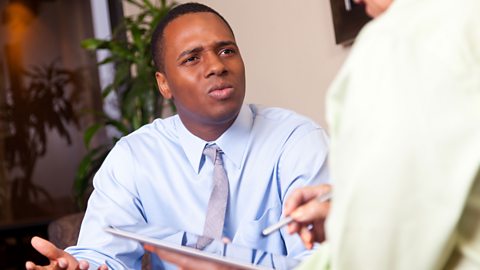
The Bitesize Careers Podcast: Help! What do I do next? videoThe Bitesize Careers Podcast: Help! What do I do next?
Wondering what to do after school? Katie Thistleton and guests help you figure out your next move.
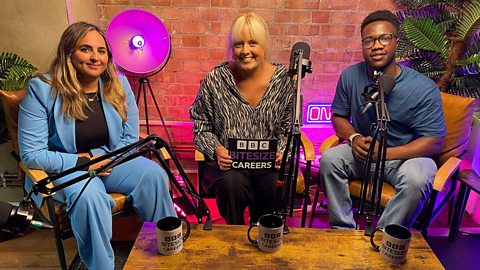
Quiz: Which apprenticeship would suit you best? quizQuiz: Which apprenticeship would suit you best?
From engineering to firefighting, and healthcare to zookeeping, find out which apprenticeship could be a good fit for you.
